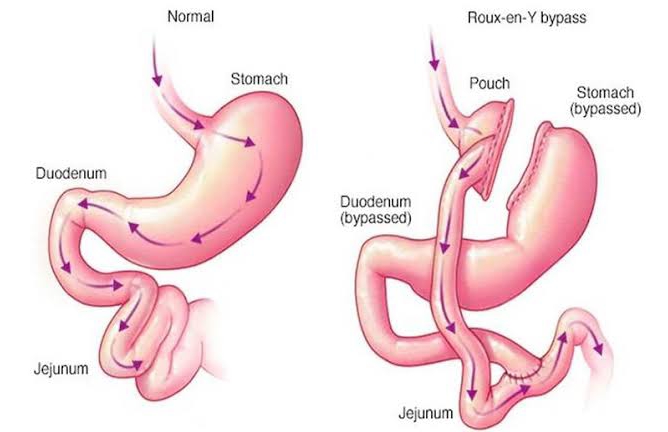Lapsurgery.com.au, Understanding Roux Y Gastric Bypass – Roux Y Gastric Bypass (RYGB) is a widely used surgical procedure for weight loss and metabolic improvement. This article explores the key aspects of RYGB, its procedure, benefits, risks, and postoperative considerations.
Procedure Roux Y Gastric Bypass:

RYGB involves creating a small stomach pouch by stapling the upper part of the stomach and connecting it directly to the small intestine. This restricts the amount of food the stomach can hold, leading to reduced calorie intake. The rearrangement of the digestive system also alters the absorption of nutrients, contributing to weight loss.
Benefits:
Effective Weight Loss: RYGB is known for significant and sustained weight loss, making it a popular choice for individuals with obesity.
Metabolic Improvements: Beyond weight loss, RYGB often leads to improvements in obesity-related conditions like type 2 diabetes and hypertension.
Long-Term Results: Many patients experience long-term weight maintenance and health benefits following RYGB.
Risks and Complications:
Surgical Risks: As with any surgery, RYGB carries inherent risks such as infection, bleeding, and anesthesia-related complications.
Nutritional Deficiencies: The altered digestive anatomy can affect nutrient absorption, leading to deficiencies in essential vitamins and minerals.
Dumping Syndrome: Rapid passage of food from the stomach to the small intestine can cause dumping syndrome, resulting in nausea, weakness, and diarrhea.
Postoperative Considerations:
Dietary Changes: Patients must adhere to a specific postoperative diet to allow for proper healing and adjust to the modified digestive system.
Lifestyle Modifications: Adopting a healthy lifestyle, including regular exercise, is crucial for long-term success after RYGB.
Follow-Up Care: Regular follow-up appointments with healthcare professionals are essential to monitor nutritional status and address any postoperative concerns.
Closing
Roux Y Gastric Bypass is a transformative surgical option for individuals struggling with obesity and related health conditions. While it offers substantial benefits, it is crucial for patients to understand the potential risks and commit to postoperative lifestyle changes for lasting success. As with any medical decision, individuals considering RYGB should consult with their healthcare providers to determine the most suitable approach for their unique needs.

